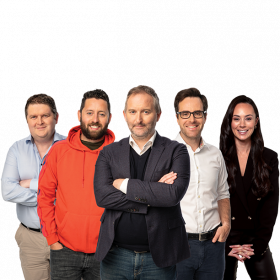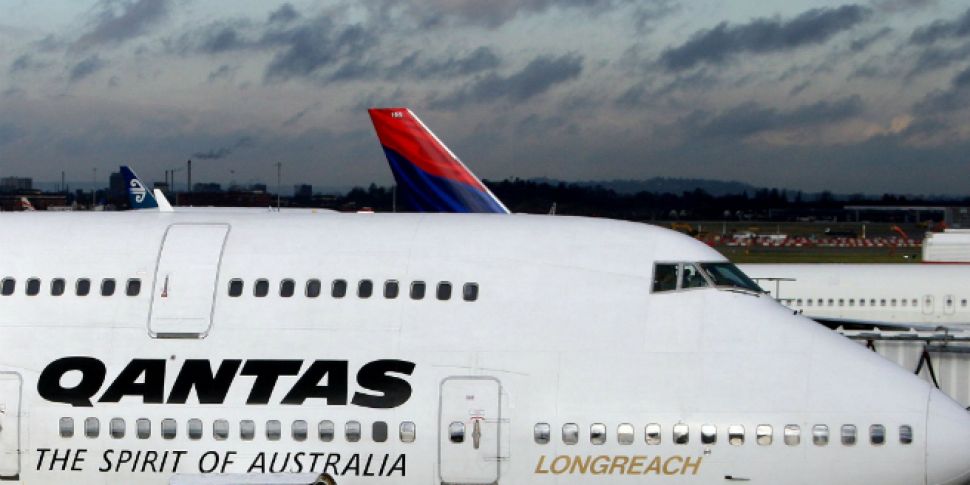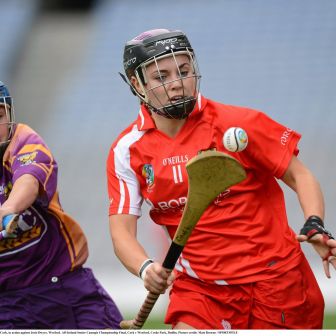"When you get jet kerosene in your nostrils, you get very fixated with the business".
So said Alan Joyce on this week's Down to Business and if anyone would know, he would.
Born in The Coombe 50 years ago this June, into a working class Tallaght family that put an emphasis on education, Joyce went on to study applied science in DIT. He never foresaw a career leading one of the world’s biggest airlines.
In an expansive interview that took in everything from his own ascent, the highs and lows of Qantas, the state of the Ireland he has long since left behind and why Australia should follow our lead when it comes to same-sex marriage, Joyce admitted:
"I wasn’t really a big aviation fanatic – the airspotters or the aerosexuals as we call them in aviation!”
Working as an operations research analyst in Aer Lingus, using mathematical models to solve problems surrounding queues, overbooked flights, spare engines and more, he quickly fell in love with the industry.
He pointed to his time leading the now-defunct Australian airline group Ansett as particularly important.
"Quite an interesting experience for me because it showed me the focus and the determination to get things done. To make changes and... not be stood down by the resistance from unions and stake holders."
Lessons learnt, Qantas came calling in 2000, a huge name in aviation and famed for its safety. Joyce noted with a laugh "that famous Rain Man scene where Dustin Hoffman wouldn’t get on an aircraft if it wasn’t a Qantas aircraft! So we take it very seriously. It's part of our DNA."
This is Ludicrous. Model S P90D takes on @Boeing 737 @Qantashttps://t.co/9mPK1mk0Kf
— Tesla Motors (@TeslaMotors) 6 April 2016
That was in evidence in 2010, when an explosion on an Airbus A380 grounded a fleet for the airline for a period of nearly two weeks.
"We were extremely lucky that we had unbelievably experience pilots and cabin crew on board. They managed it unbelievably well, got the aircraft on the ground.
"We had three aircraft with 1,200 people pushing back from the gates. The A300s. We made the call to ground them. They were on the ground for over 12 days until we found out what the problem was."
Having been in the industry for some of the biggest changes in recent times, Joyce said he noticed "a very different approach in Qantas at the time to the problem of September the 11th. A can-do attitude, a real progressive change focus and a company that coped really well with the changes it experience over that period of time."
Another challenge, despite the fact that they're based in Australia, was the volcanic ash cloud which grounded flights in 2010. "Believe it or not, that cost us 20 million dollars in Australia," said Joyce, "so these worldwide events have a big impact on airlines around the globe."
Joyce has also overseen big changes in his time at Qantas, including bringing low-cost carrier Jetstar into the market and how that had a knock-on effect for other airlines in a positive way.
"Having created Jetstar, providing people with a cheap low fares alternative to travelling around the country, it freed Qantas up to even invest more in its product and services [...] Since I've been CEO, its customer service ratings have improved unbelievably. Every month, we're getting record levels."
Joyce also spoke about strikes in 2011 that, once again, resulted in flights from the airline begin grounded, and the statements from union leaders that they were "going to slowbake Qantas. They were going to see the bodies flowing down the rivers. It was very colourful, aggressive language."
Despite that conflict, there was still a positive outcome, as Joyce outlined, stating that without that impetus to change the business, "we wouldn't have been able to turn around the company from a 2.8 billion loss three years ago to a record profit on the first half of over 900 million in six months."
Listen to the full interview below:









